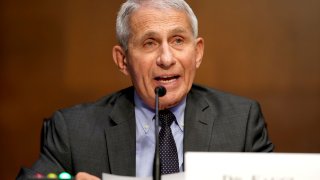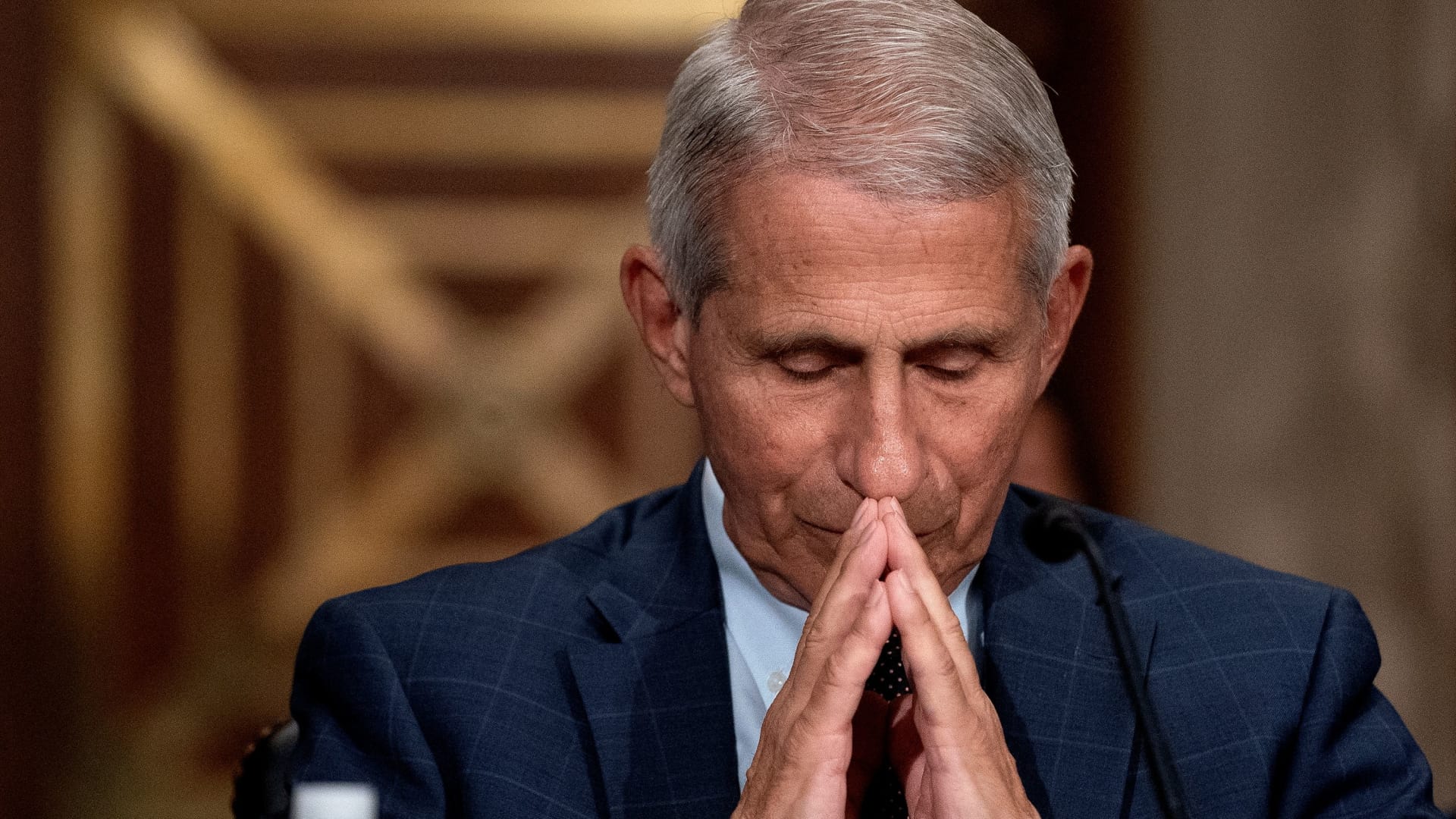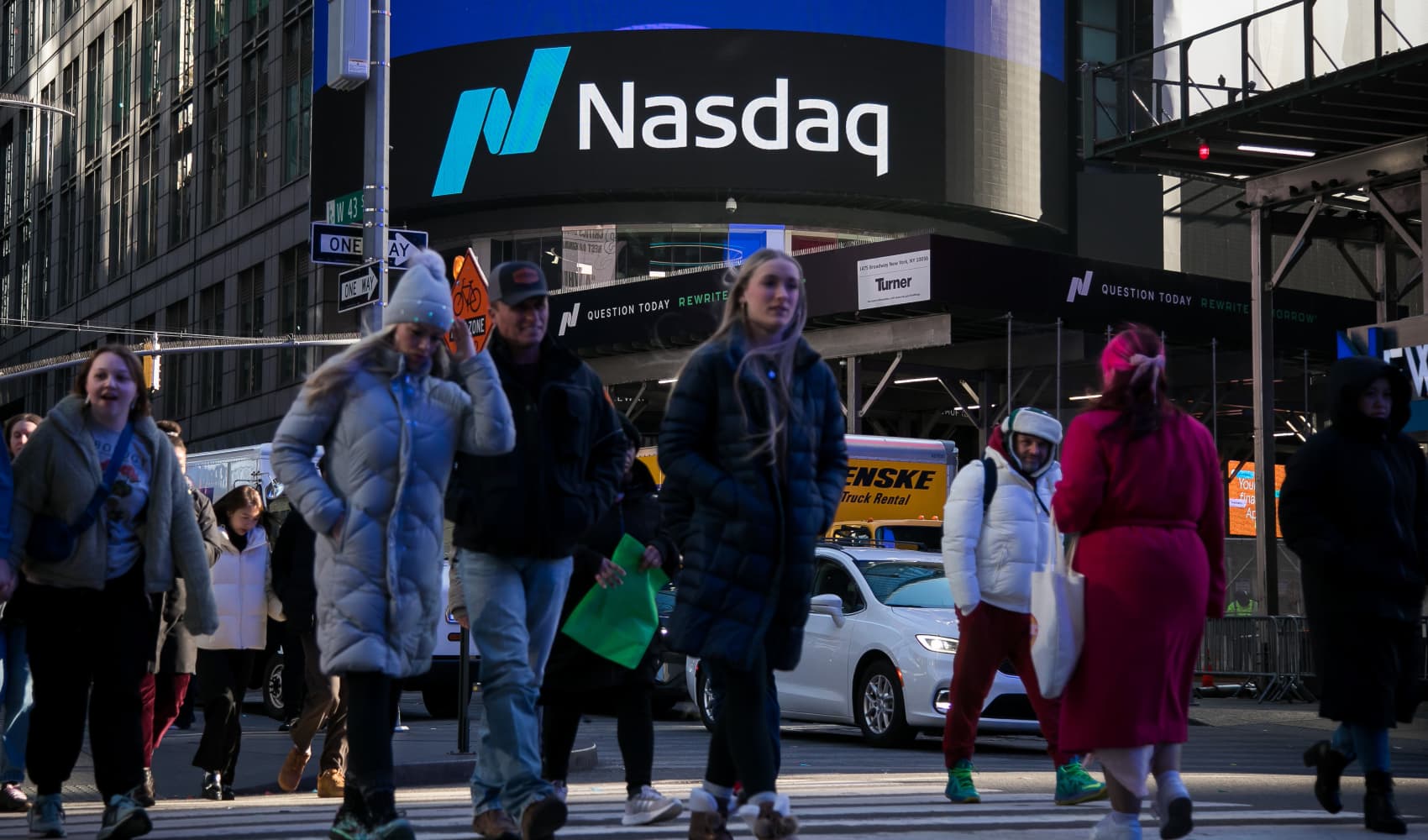
- Dr. Anthony Fauci warned that upcoming coronavirus mutations could be even more contagious than delta, which has a viral load "about 1,000 times higher" than the alpha variant.
- The U.S. is reporting a seven-day average of nearly 94,000 new cases as of Aug. 4, up 48% from one week ago, according to data from Johns Hopkins University.
- The recent Covid surge has most severely affected unvaccinated people, and Fauci said there remain roughly 93 million eligible, unvaccinated people nationwide.

WATCH ANYTIME FOR FREE
>Stream NBC10 Boston news for free, 24/7, wherever you are. |
White House chief medical advisor Dr. Anthony Fauci warned that a more severe Covid variant could emerge as the U.S. daily new case average is now approaching 100,000 per day, exceeding the level of transmission last summer before vaccines were available.
Fauci, in an interview with McClatchy published Wednesday evening, said the U.S. could be "in trouble" if a new variant overtakes delta, which already has a viral load 1,000 times higher than the original Covid strain.
Get updates on what's happening in Boston to your inbox. Sign up for our >News Headlines newsletter.
Delta has upended the U.S. response to the pandemic, as it has proven capable of infecting even people who are vaccinated. Moderna warned on Thursday that breakthrough infections will become more common as the delta variant continues to spread.
However, vaccines still provide strong protection against severe illness and death, and the overwhelming majority of new infections are among people who are unvaccinated. Moderna, for example, said Thursday that the booster shot it's developing produced a robust immune response against delta.
Money Report
Fauci warned in the interview that the U.S. is "very lucky" to have vaccines that have held up against the variants, suggesting that may not be the case if even more severe strains emerge.
"If another one comes along that has an equally high capability of transmitting but is also much more severe, then we could really be in trouble," Fauci told McClatchy. "People who are not getting vaccinated mistakenly think it's only about them. But it isn't. It's about everybody else, also."
The U.S. is reporting a seven-day average of nearly 94,000 new cases as of Aug. 4, up 48% from one week ago, according to data from Johns Hopkins University. In a separate measure from the average, the U.S. actually topped 100,000 daily new cases on Monday and Tuesday.

Fauci predicted that new case totals could eventually reach somewhere between 100,000 and 200,000 cases per day as the delta variant spreads.
The recent Covid surge has most severely affected unvaccinated people, and Fauci said there remain roughly 93 million eligible, unvaccinated people nationwide.
"You protect the vulnerable targets, who are unvaccinated people, by vaccinating them," Fauci said at a White House briefing Thursday morning. "And when you do so, you do a very, very strong blocking of the evolution of variants that could be problematic."
"If we do that in the immediate, intermediate and long-term and do the mitigation right now, we will turn the delta surge around," Fauci added.
When asked if the vaccines still prevent 99% of Covid deaths and 95% of hospitalizations, CDC Director Dr. Rochelle Walensky said that conclusion is based on data from January through June. The CDC is "working to update those [figures] in the context of the delta variant," she said.
In a series of interviews CNBC conducted in July, multiple health officials echoed Fauci's concerns over the emergence of a new variant. Dr. Stephen Morse, a professor of epidemiology at the Columbia University Irving Medical Center, said in an email that the "cycle of new variants keeps repeating as long as the virus infects people and circulates in the population, allowing opportunities for the virus to evolve."
"I'd be very surprised if Delta were the last of the line," Morse said.
And Dr. Barbara Taylor, a dean and infectious disease professor at UT Health San Antonio, added that future variants "that increase transmission will have the advantage" moving forward.
"As long as we have active spread of disease anywhere on the globe, we will continue to see new variants because we are giving the virus opportunities to evolve," Taylor said in an email.
Though vaccinations are far below pandemic highs, the U.S. is reporting an average of about 677,000 daily vaccinations over the past week as of Wednesday, up 11% from one week ago, according to CDC data. The country peaked at a reported average of 3 million shots per day in mid-April, but the rate of first doses administered has increased in recent weeks, driven by states with severe outbreaks and low vaccination rates.
President Joe Biden said in May that he wanted 70% of the vaccine-eligible population to receive at least one vaccine dose by the Fourth of July. The U.S. reached his goal on Monday, CDC data indicated, about a month late.
— CNBC's Nate Rattner contributed to this report.






